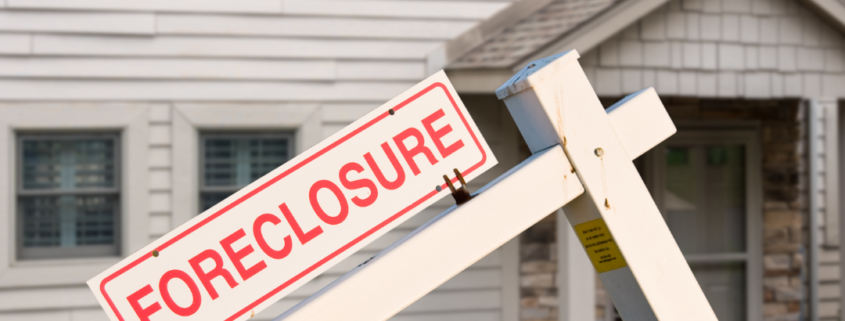Can I Sell My House Before It Goes Into Foreclosure?
We will often meet with clients about what options they have to sell a property instead of losing it to a foreclosure. Contrary to popular opinion, a foreclosure of a property (unless resulting in a short sale) does not result in a loss of all money or equity from that property, as the owner of record may be entitled to any surplus of the proceeds from foreclosure sale. See Florida Statute § 45.032. However, properties lost at foreclosure are sold at public auction to the highest bidder, many of whom are investors and are not looking to pay top dollar for the property. The sale at auction does not allow the owner to control the price or terms of the sale and usually does not result in the highest purchase price applicable to the property.
What Should I Do If I’m Behind on My Mortgage?
Many people facing foreclosure know that they have not made mortgage payments. Sometimes they missed one month, and sometimes they missed multiple months before the lender threatened the foreclosure process. When facing a foreclosure action against your property, it is important to act quickly. Upon knowledge that you do not have the financial means to keep up with the mortgage, you should be looking at remedies such as a refinance or sale of the property. Waiting to sell the property, or refinance into a more sustainable loan (if possible) can jeopardize the ability to complete the sale as the foreclosure process nears completion.
How Long Does It Take to Sell a House Before Foreclosure?
Sellers often wait until the foreclosure process is threatened or even filed to begin moving towards the sale of the property. This can have numerous negative effects on the sale process. Sellers often fail to realize that a Buyer purchasing through a mortgage may need a period of Thirty (30) to Forty-Five (45) days, and your sale process may be subject to multiple different Buyers who decide not to move forward under the inspection period, or who can’t qualify for a mortgage. A sale of a property can occur as early as a week or two after contract execution, or it could take months, depending on the condition of the house, the price it is offered for, market conditions, and many other factors. Simply listing your house for sale does not mean it will be sold in time to stop the foreclosure auction, or that it will sell at all.
How Do I Legally Delay a Foreclosure in Florida?
If you want to get the most money available out of your property you need to take affirmative steps to slow the foreclosure process to allow more time for a sale. Typically, after being served with the foreclosure documents, you will have twenty (20) calendar days to respond. You need to respond to the complaint to prevent a default judgment against you. A default judgment allows the creditor to expedite the sale process. Once a default is entered, it will be very hard to overturn said default unless you have valid defenses. If the foreclosure is based on non-payment, and you get defaulted, we may not have sufficient grounds to vacate the judgment. This response can come in the form of an answer, or other motions, such as a Motion to Dismiss, if applicable. There are many actions that an Owner can take to defend against a foreclosure case that delay the rendering of a final judgment. It is important to consider that most of the time, a Lender will not agree to stop or delay the foreclosure action based on your request to do so, even if you are going to sell the property.
Should I Talk to a Lawyer If I’m Trying to Sell My House During Foreclosure?
If you are facing a current or threatened foreclosure, or if you know that you are not making payments that will inevitably lead to a foreclosure, give us a call and let’s talk about ways we can help you defend the case to allow a sale of the property, thereby maximizing your ability to control the price and terms and to get the most money out of your property.
—
The attorneys at The Orlando Law Group help with all types of legal issues for homeowners and property owners in Orlando, Waterford Lakes, Altamonte Springs, Winter Garden, Lake Nona, St. Cloud, Kissimmee, and throughout Central Florida.
If you have questions about anything discussed in this article or other legal matters, give our office a call at 407-512-4394 or fill out our online contact form to schedule a consultation to discuss your case. We have an office conveniently located at 12301 Lake Underhill Rd, Suite 213, Orlando, FL 32828, as well as offices in Seminole, Osceola and West Orange counties to assist you.
The articles on this blog are for informative purposes only and are no substitute for legal advice or an attorney-client relationship. If you are seeking legal advice, please contact our law firm directly.
Last Updated on July 22, 2025 by The Orlando Law Group




